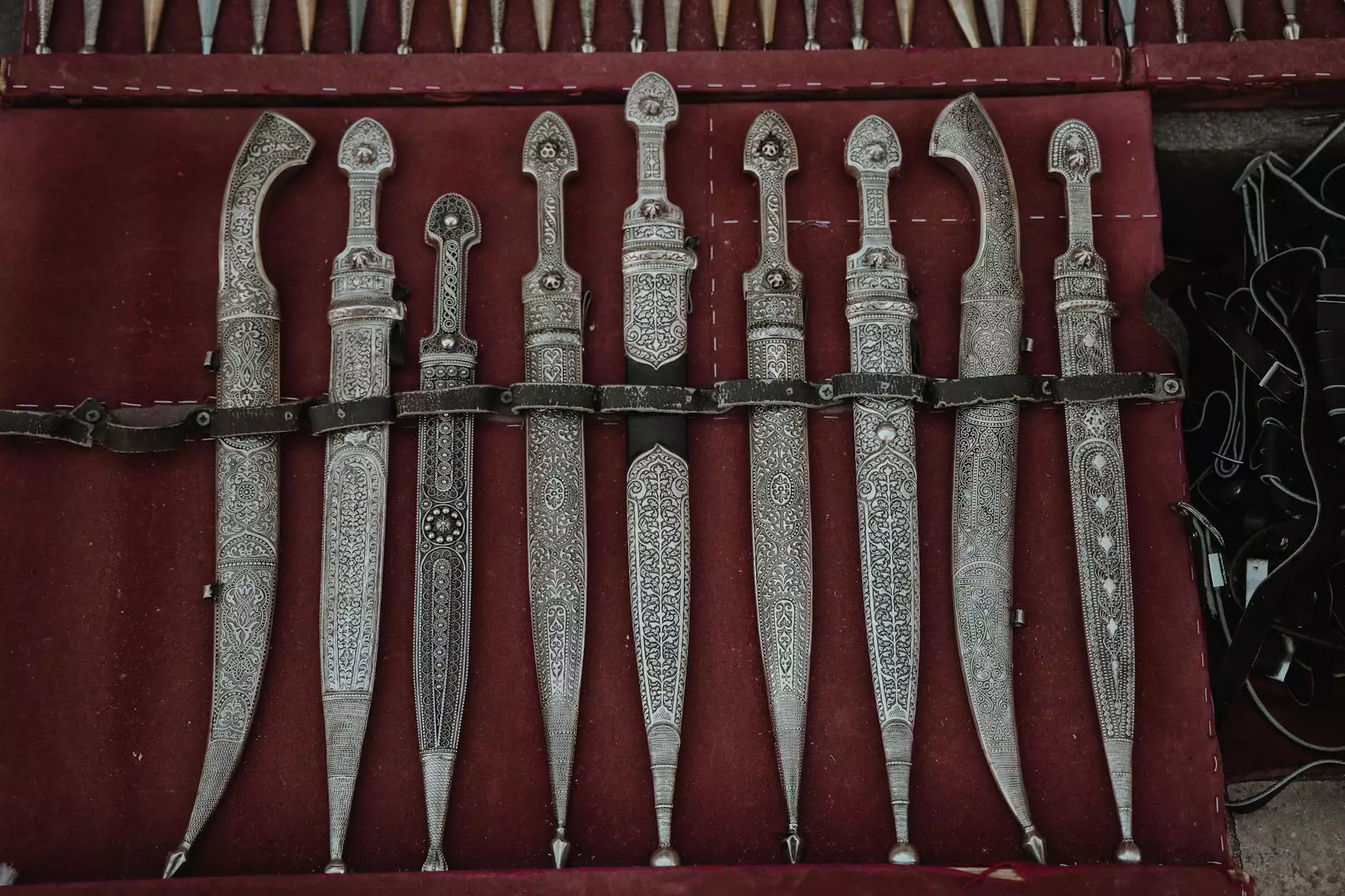Understanding the Value of a Modern Blades Factory

In today’s fast-paced world, the significance of high-quality cutting tools cannot be overstated. Whether you are a chef, a craftsman, or an industrial worker, the tools you use play a vital role in your productivity and efficiency. This is where a well-established blades factory comes into play. At szblade.com, we pride ourselves on delivering exceptional knife sharpening services and high-end professional blades that cater to various industries.
The Essence of Quality in Blades Manufacturing
The journey of creating superior blades begins with a deep understanding of materials and craftsmanship. At a prominent blades factory, the manufacturing process adheres to stringent quality control measures that ensure every product meets the highest standards.
1. Selection of Materials
The foundation of any high-quality blade starts with the selection of materials. High-carbon stainless steel is often the preferred choice due to its durability and ability to maintain a sharp edge. Aspects of material selection include:
- Durability: Materials must withstand the rigors of daily use.
- Corrosion Resistance: Essential for kitchen knives and tools exposed to moisture.
- Edge Retention: The ability to hold a sharp edge over time.
2. Precision Engineering Processes
Precision is key in blade manufacturing. Advanced machining techniques, such as CNC (computer numerical control), allow for the production of blades with exact specifications. This not only enhances the efficiency of the cutting tool but also ensures consistency across products. Key processes include:
- Forging: The shaping of metal using localized compressive forces.
- Hardening: Increasing the hardness of the blade for improved durability.
- Finishing: Polishing and sharpening that perfects the blade’s edge and appearance.
The Role of Expertise in Knife Sharpening
Even the best blades require regular maintenance to perform at their best. This is where professional knife sharpening services shine. At our blades factory, we offer tailored sharpening solutions that consider the specific requirements of different blades and their intended uses.
1. Importance of Regular Sharpening
Regular knife sharpening is crucial for:
- Performance: A sharper blade cuts more efficiently, requiring less force.
- Safety: Dull knives can slip and cause injuries.
- Longevity: Proper sharpening extends the lifespan of your blades.
2. Techniques and Methods Used
Our expert sharpeners employ various techniques tailored to specific types of knives, including:
- Whetstone Sharpening: Offers complete control over the sharpening angle and pressure.
- Electric Sharpeners: Provides a quick and consistent edge for various blade types.
- Honing: A process that realigns the blade edge rather than reshaping it, maintaining sharpness between full sharpenings.
The Impact of Technology on the Blades Industry
As technology evolves, so too does the blades factory methodology. Modern advancements have significantly enhanced production efficiency and product quality.
1. Automation and Robotics
Many factories now utilize automation to streamline the production process. Automated systems can manage high-volume output while maintaining precision. This has led to:
- Increased Production Rates: Capable of producing large quantities without sacrificing quality.
- Consistency: Reduces human error, ensuring uniformity in blade quality.
- Cost-Efficiency: Reduces labor costs and allows for competitive pricing.
2. Advanced Coatings and Treatments
Applying specialized coatings to blades enhances their performance. For example:
- Teflon Coating: Reduces friction and prevents food from sticking to kitchen knives.
- Hardening Treatments: Improve edge retention and corrosion resistance.
- Decorative Finishes: Enhance aesthetic appeal for consumer knives.
Sustainable Practices in Blades Manufacturing
As the world becomes more environmentally conscious, sustainable practices are increasingly becoming a priority in the blades factory arena. This includes:
1. Eco-Friendly Materials
Utilizing materials that minimize environmental impact is essential. Manufacturers are now sourcing:
- Recycled Steel: Reduces waste and carbon footprint.
- Bamboo Handles: The sustainable alternative to plastic or synthetic materials.
2. Energy Efficiency in Production
Adopting energy-efficient practices contributes to a smaller environmental footprint:
- Renewable Energy Sources: Utilizing solar or wind energy in manufacturing processes.
- Waste Reduction Systems: Implementing measures to recycle scrap material and reduce waste.
Choosing the Right Blades Factory for Your Needs
With numerous manufacturers available, selecting the right blades factory is crucial for obtaining quality products. Here are some factors to consider:
1. Reputation and Experience
Evaluate the factory's track record in the industry. A reputable manufacturer typically has numerous positive reviews and a history of satisfied customers.
2. Range of Services Offered
Look for factories that offer a comprehensive range of products and services, such as:
- Custom Blades: Tailored to specific applications.
- Professional Knife Sharpening: Ensures longevity and performance.
3. Customer Support
Exceptional customer support is vital for addressing any queries or issues. Ensure the factory provides:
- Warranty Policies: Assurance of quality and satisfaction.
- Fast Response Times: Quick handling of customer inquiries.
Conclusion: The Future of Blades Manufacturing
In conclusion, the blades factory of today is a harmonious blend of tradition and innovation. By focusing on quality materials, precision engineering, and sustainable practices, manufacturers are able to meet the growing demand for top-notch cutting tools and services. At szblade.com, we are committed to excellence in every aspect of blades manufacturing and sharpening. Partner with us for all your professional needs and experience the true value of high-quality blades.









